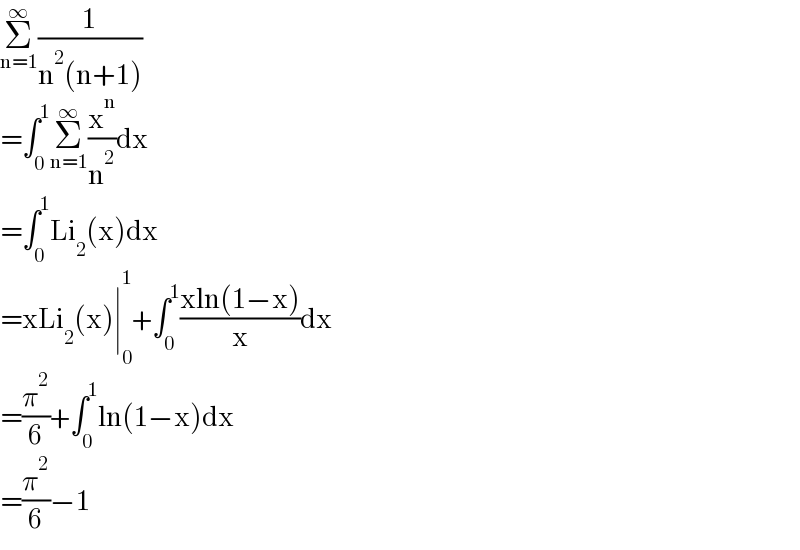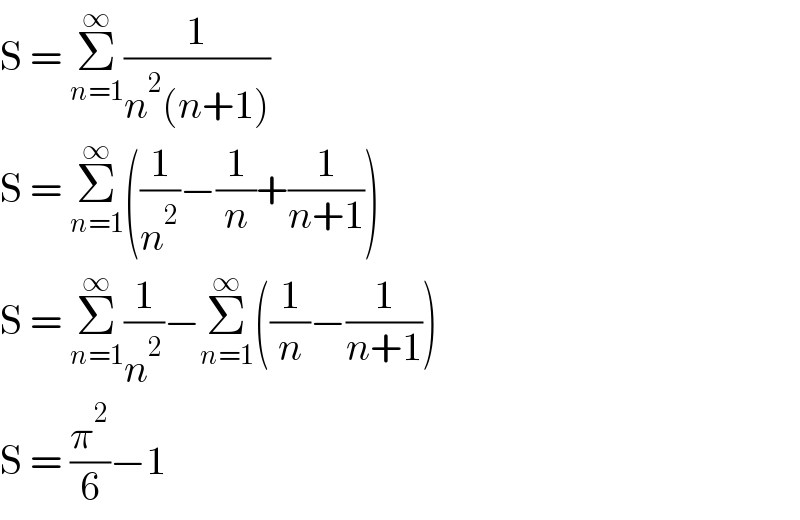
Question and Answers Forum
Question Number 143131 by mohammad17 last updated on 10/Jun/21

Answered by qaz last updated on 10/Jun/21

Commented by mohammad17 last updated on 11/Jun/21

Answered by Olaf_Thorendsen last updated on 10/Jun/21

| ||
Question and Answers Forum | ||
Question Number 143131 by mohammad17 last updated on 10/Jun/21 | ||
 | ||
Answered by qaz last updated on 10/Jun/21 | ||
 | ||
| ||
Commented by mohammad17 last updated on 11/Jun/21 | ||
 | ||
Answered by Olaf_Thorendsen last updated on 10/Jun/21 | ||
 | ||
| ||